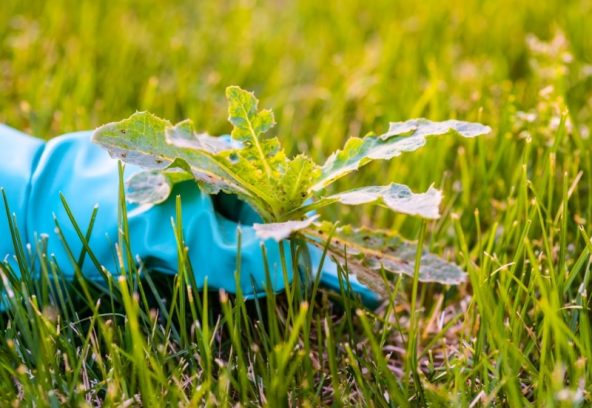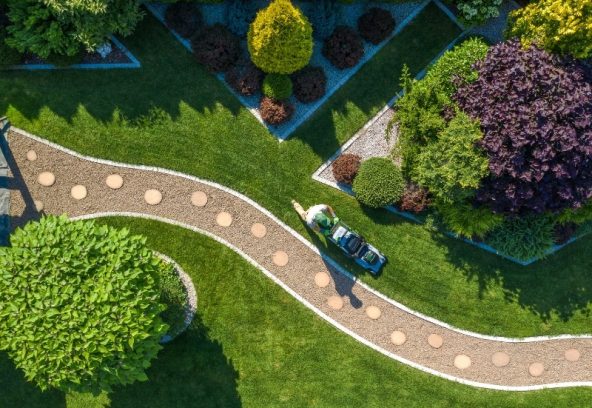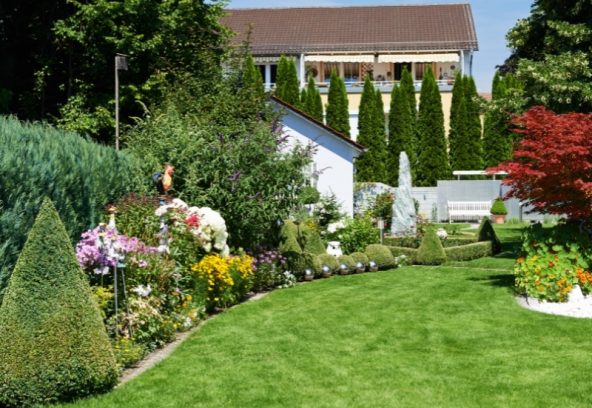Why Is Removing Weeds from the Garden Important?
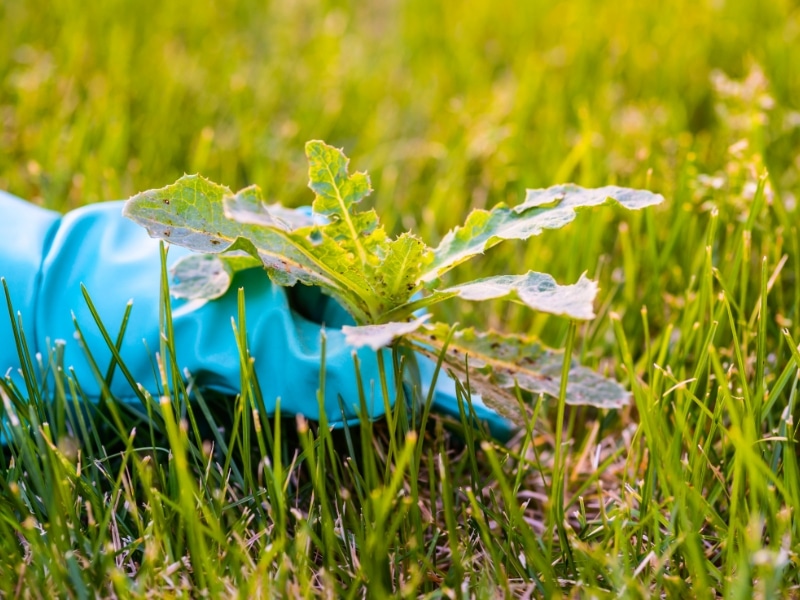
Weeds are more than just a visual nuisance — they compete with your plants for light, water and nutrients. If left unchecked, they can choke out flowers, veggies and shrubs, turning a once‑healthy garden into a struggling mess. You might pull them out regularly, but they keep coming back, don’t they? That’s no coincidence. This article explores why removing weeds from garden spaces is critical for long‑term garden health.
What problems can weeds cause in your garden?
Weeds don’t just look out of place. They create real and ongoing issues for garden ecosystems. These unwanted plants can overtake even the most carefully designed gardens, crowding out the species you want to grow.
- Some weeds spread aggressively, taking over garden beds within a few weeks if left alone.
- Certain types release chemicals into the soil that suppress the growth of nearby plants.
- Dense weed cover can restrict air circulation and raise humidity, leading to fungal problems.
- Weeds often act as hiding spots for insects that feed on healthy garden plants.
Letting weeds run wild can quickly undermine your effort and investment. Even if you’re using quality mulch or watering properly, the risk of losing your plants to competition is real. Worse still, some weed species regenerate from tiny root fragments, meaning your manual efforts could spread them further.
How do weeds affect soil health and plant growth?
Weeds aren’t just greedy for space — they rob your soil of nutrients and moisture, weakening everything else trying to grow there. Many gardeners don’t realise how fast the impact can snowball, especially in dry conditions.
- Fast‑growing weeds absorb moisture more rapidly than most ornamental plants.
- Some invasive species degrade soil structure, making it harder for roots to anchor and absorb nutrients.
- Weeds can increase the soil’s acidity or disrupt pH balance depending on the species.
- Their root systems often intertwine with garden plants, making them harder to remove without damage
Without intervention, your soil’s fertility drops, and the plants you want to thrive may suffer. If you’re struggling to maintain balance, it helps to understand the long‑term effects of unchecked weed growth on soil — and the importance of prevention early in the season.
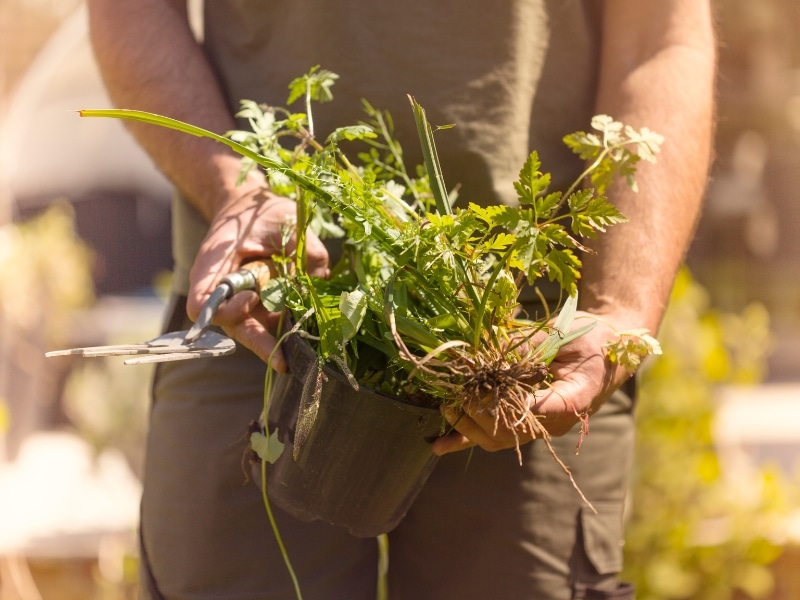
Why do weeds keep coming back even after removal?
If you’ve pulled weeds by hand, only to see them pop up again days later, you’re not imagining things. That’s a sign the problem isn’t just surface‑level. The persistence of weeds usually comes down to a few overlooked causes.
- Seeds can lie dormant in the soil for years and only sprout once disturbed
- Some species regenerate from root fragments, even if most of the plant is removed
- Poor mulching practices leave enough light for weeds to regrow, especially in warmer months
- Using the wrong tools can leave the soil exposed, creating the perfect comeback conditions
Weeds that seem to vanish might still be lurking underground. A short‑term fix often leads to more frustration, especially if the same patch keeps flaring up. Timing and technique both matter. Understanding this cycle helps you stop playing catch‑up and break the pattern.
What are the most effective weed removal techniques?
To break the cycle, you need more than a trowel and good intentions. Effective weed control starts with understanding your garden’s specific conditions and applying a mix of targeted strategies.
- Mulching with organic or synthetic layers blocks light and reduces seed germination.
- Boiling water or flame weeding offers chemical-free spot treatment for paved areas
- Pre-emergent herbicides stop seeds from sprouting, reducing seasonal outbreaks
- Hand-pulling with the right tools can remove roots entirely
Technique matters as much as timing. For broader infestations or garden areas prone to repeat flare‑ups, it’s worth taking a more consistent approach. You can always discover reliable solutions for removing weeds from garden spaces that align with your landscape and climate.
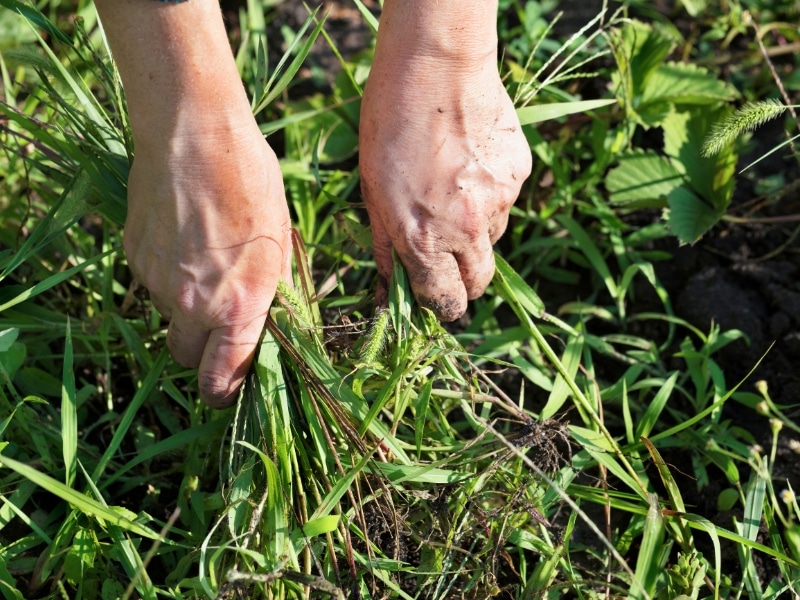
Can removing weeds from the garden help prevent pests?
Weeds don’t just compete with your plants — they often host pest species that spread quickly and cause serious damage. Insects and rodents favour dense weed patches, especially around the edges of raised beds or fences.
- Aphids, mites and beetles often hide in weedy zones before migrating to nearby crops
- Rodents can tunnel into loose, weedy soil, creating entry points for further infestations
- Leafy weeds provide cover for snails and slugs, which feed on soft-stemmed garden plants
- Some parasitic species breed inside weed flowers, going unnoticed until populations explode
It’s not just about looks — weed control is one of the most effective ways to reduce pest pressure without relying on chemical sprays. If you’re working towards a balanced garden environment, consider tying weed management directly to your pest control plan. It’s a key part of the best practices for managing a well‑maintained garden over time.
When should you start removing weeds from garden beds?
Timing plays a huge role in how successful your weeding efforts will be. Waiting too long gives weeds time to set seed, making next season’s job even more challenging. You don’t need to be out there every week, but knowing when to act makes all the difference.
- Target early spring, before annual weeds flower and seed
- After rain, it is ideal — moist soil makes roots easier to pull
- Don’t wait until weeds are knee‑high; young shoots are faster to remove and less damaging
- Keep an eye on garden bed edges, where weeds often establish first
Here’s a simple timing guide for the Sydney region:
| Season | Ideal Action | Common Weeds to Watch |
| Early Spring | Hand removal + mulching | Bindii, clover |
| Summer | Spot spray + trimming | Nutgrass, oxalis |
| Autumn | Bed clearing | Thistle, chickweed |
| Winter | Preventative mulching | Capeweed, flickweed |
How does weed control contribute to lasting garden success?
Maintaining a weed‑free garden isn’t just about aesthetics. It helps your soil stay healthy, supports long‑term plant growth, and keeps pest populations in check. It’s about setting your garden up for continued success — not just getting through the current season.
- Fewer weeds mean more nutrients available for productive plants
- Consistent control prevents invasive species from taking root
- Proper timing reduces the risk of yearly reseeding from dormant species
- Weed-free gardens are easier to manage and more rewarding to maintain
If you’re struggling with repeat weed outbreaks or are tired of spending weekends pulling the same plants, it’s worth exploring how Bespoke Landscaping Sydney handles stubborn garden weeds with consistency and care.

